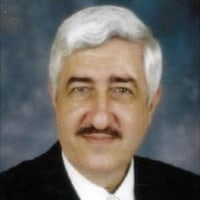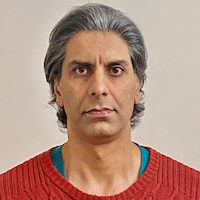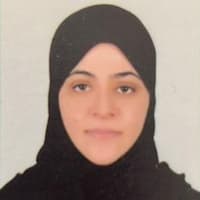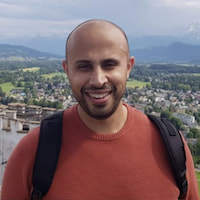Organ Donation and Transplantation: Islamic Perspective
About The Course
Al Balagh Academy is offering a unique course on Organ Donation and Transplantation from an Islamic perspective. The course aims to develop your knowledge, skills and confidence to care for Muslim patients who are in need of organs and their families, as well as how to engage with Muslims, their families and communities on the issue of organ donation.
Three out 10 patients across the UK waiting for an organ transplant are from black, Asian and minority ethnic communities, which include majority of the Muslim community and similar figures are reflected around the world. Yet, Muslim communities hold more negative attitudes towards organ donation than other communities? What are the underlying reasons? The issue of organ donation in Islam has been debated for decades, with most religious authorities sanctioning both living-organ and deceased-organ donation. However, disquiet among the Islamic community on the compatibility of organ donation with their faith remains, especially in relation to deceased-organ donation. This remains a topical, controversial, and challenging component of organ procurement at both local and international levels.
This course has been designed for Muslim health professionals and chaplains who want answers to their faith-based queries related to organ donation and transplantation. It is designed to educate and explore common issues relevant for both allied health professionals who work in the field organ donation and transplantation as well as Muslim shari’ah scholars who want to gain a deep insight into associated challenges and their potential solutions.
Course Team
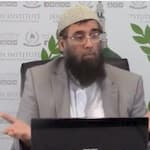
Shaykh Dr. Rafāqat Rashid
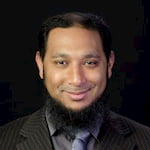
Shaykh Dr Mansur Ali
(Lecturer in Islamic Studies, Cardiff University, UK)

Dr Sahira Dar
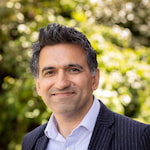
Professor Gurch Randhawa
(Professor of Diversity in Public Health, Institute for Health Research, University of Bedfordshire, UK)
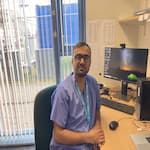
Dr Usman Khalid
PhD FRCS, Consultant Transplant and Organ Retrieval Surgeon, University Hospital of Wales, Cardiff, UK

Dr Shafi Malik
(FRCP, Consultant Transplant Nephrologist, University Hospitals of Coventry and Warwickshire)
Dr Hassan Chamsi-Pasha
(MD, FRCP(Lond), FRCP(Glasg), FRCP(Ire), FACC GNP Hospital, Jeddah)
Dr Saeed Ahmed
(Consultant Interventional Nephrologist and General Medicine Physician)
Dr. Asmaa Al Abdulghani
(Senior Medical Manager. Hamad Medical Corporation , Qatar)
Dr Omer Aziz
(Paediatric Intensive Care Consultant Bristol Royal Childrens Hospital)
14 Live Online Sessions
Duration : 4 months
Sunday, 03:00 PM- 04:30 PM (London, UK)
Video Recordings Available

Access to Mobile App
Certificate
From £24.99/Month
Enrol Now
Starts on 18th September 2022
Course Fee:
Pay in Full: £119.99 £99.99
(We are providing Upto 20% Early Bird Scholarship on this Course)
Pay In 4 Installments: £29.99 £24.99 per month
Registration Deadline:
17th September 2022
Al Balagh Scholarship
AlBalagh Scholarship is available for learners who cannot afford the fee.
Modules
1
Introduction
2
Muslims and Organ Transplantation – What are the Statistics
3
What you need to know about the Organ Transplantation Process
4
What are the Alternatives to Organ Transplantation?
5
Fatawa Committees and Organ Transplantation
6
Seven Faces of the Fatawa on Organ Transplantation
7
Detailed Fiqh – Dignity in the Body
8
Neurological Death and Dead Donor Rule
9
Detailed Fiqh – Neurological Death and Dead Donor Rule
10
Organ Trafficking and Exploitation
11
Types Of Organ Donation Programmes -Opt-In, Opt-Out
12
How to Deliver Awareness Programmes to Muslims
13
Case Studies – 1
14
Case Studies – 2
15
Panel Discussion
Course Overview
This course will discuss the severity of the problem for Muslim patients around the world. It will discuss the different processes of organ procurement and transplantation, its alternatives, and the Islamic arguments both for and against organ donation and transplantation. The course will delve in details around contemporary fiqh related to controversial topics like brain death, the Islamic view of human bodily dignity, dead donor rule, organ trafficking and exploitation, as well as the acceptability of different types of organ transplantation programmes around the world in view of the shari’ah. There will also be discussion on how to go about engaging with Muslim communities, and important lessons learnt from good practice when delivering awareness programmes or workshops to Muslims in mosques and other community settings.


Key Objectives
The key objectives of this course are to:
- Develop an understanding of the Islamic principles and ethico-legal views related to organ donation and transplantation.
- Examine the various common situations faced by Muslim practitioners, patients and their families related to donating organs and transplantation.
- Evaluate the critical, and controversial issues arising from organ donation programmes and organ transplantation processes.
- Provide good practice on how to engage with donors and their families as well as Muslim organ recipients.
- How to deliver effective awareness workshops in Mosques and Muslim communities.
Learning Outcomes
After completing the course, the students will be able to:
- Understand the Islamic principles and ethico-legal views related to organ donation and transplantation.
- Deal confidently with common situations faced by Muslim practitioners, patients and their families related to donating organs and transplantation.
- Effectively evaluate the critical, and controversial issues arising from organ donation programmes and organ transplantation processes and develop solutions.
- Engage effectively with donors and their families as well as Muslim organ recipients.
- Deliver effective awareness workshops in Mosques and Muslim communities.


